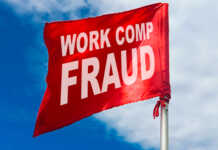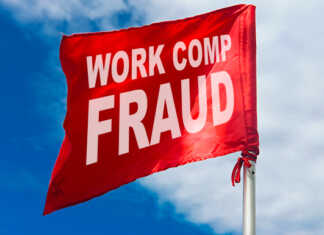Finding new housing can be stressful, especially if you are relocating to a different city or downsizing due to the rising cost of living. Finding reliable tenants can be equally as stressful for landlords who rely on income from rentals.
Rental fraud can be perpetrated by a prospective tenant or a landlord. Fraud occurs when someone claiming to be a landlord attempts to rent properties that don’t exist, advertises a property that isn’t theirs to rent, or shows a property that is significantly different than advertised. Scammers try to collect application fees, security deposits, or rent before the renter recognizes the scam. They will steal ads for real properties with altered contact information or re-list homes for sale as rentals. Prospective renters may have someone meet the landlord in their place, posing as the renter who may appear as a more desirable tenant.
Due to the exchange of a lot of sensitive information, it is important to look out for potential scams before making a move.
Be on the lookout for these tricks
- The listing photos have an MLS watermark and are listed outside of a real estate agency.
- The listing details are vague.
- The landlord refuses to show the rental and uses high-pressure tactics to urge you to sign the lease quickly.
- The landlord is out of the country.
- The advertised price is much lower than that of similar properties.
- The landlord instructs you to wire money.
- The person meeting the landlord may not be the person renting the unit and does not disclose this information.
- The renter gives the landlord a check for more than the rental amount and asks for the difference back in cash.
- The tenant who leased the unit subleases to another renter, takes the rental money, and runs.
How to protect yourself
- Visit the property to ensure the property matches the listing details and pictures. If you don’t live nearby, have someone visit the property for you or conduct a live, virtual walk-through.
- Verify property ownership by looking up city records or talking to the building manager.
- Rent from well-known property management companies that have trusted leasing agents.
- Confirm prices and amenities in the advertisement or promised verbally before signing a lease or paying a deposit.
- Don’t give in to high-pressure sales tactics.
- Don’t give your personal information to a property owner without verifying their identity.
- Only pay a deposit or the first month’s rent after the lease is signed.
- Avoid making payments with cash or wire transfer. When possible, use a credit card or check, which are easier to track.
- Conduct a background check on the prospective renter.
- Request the renter’s personal references and verify their income.
- Conduct an image search of your property. Scammers may use images of your property to create their own listings.
- Report scams to the Federal Trade Commission.

















